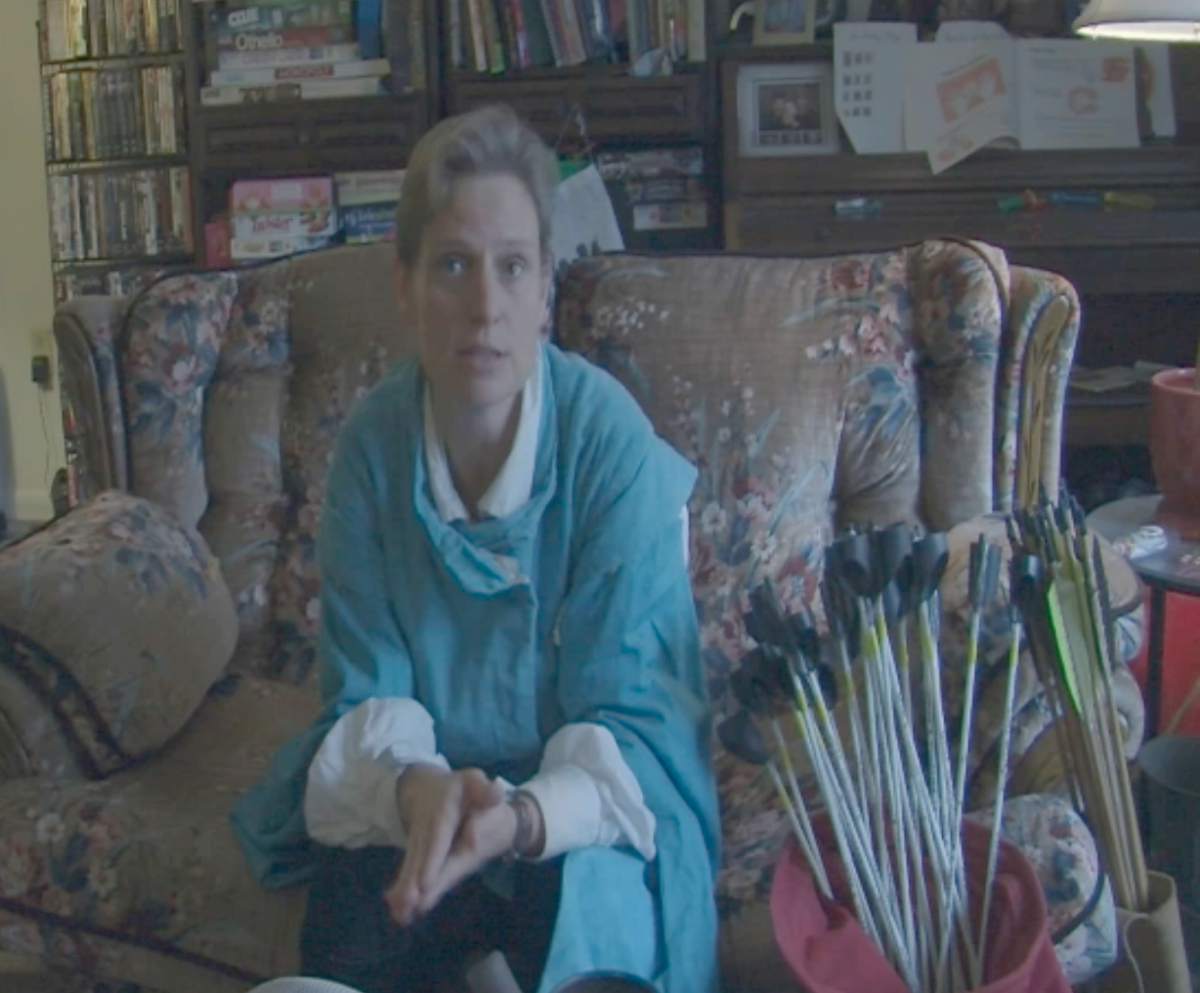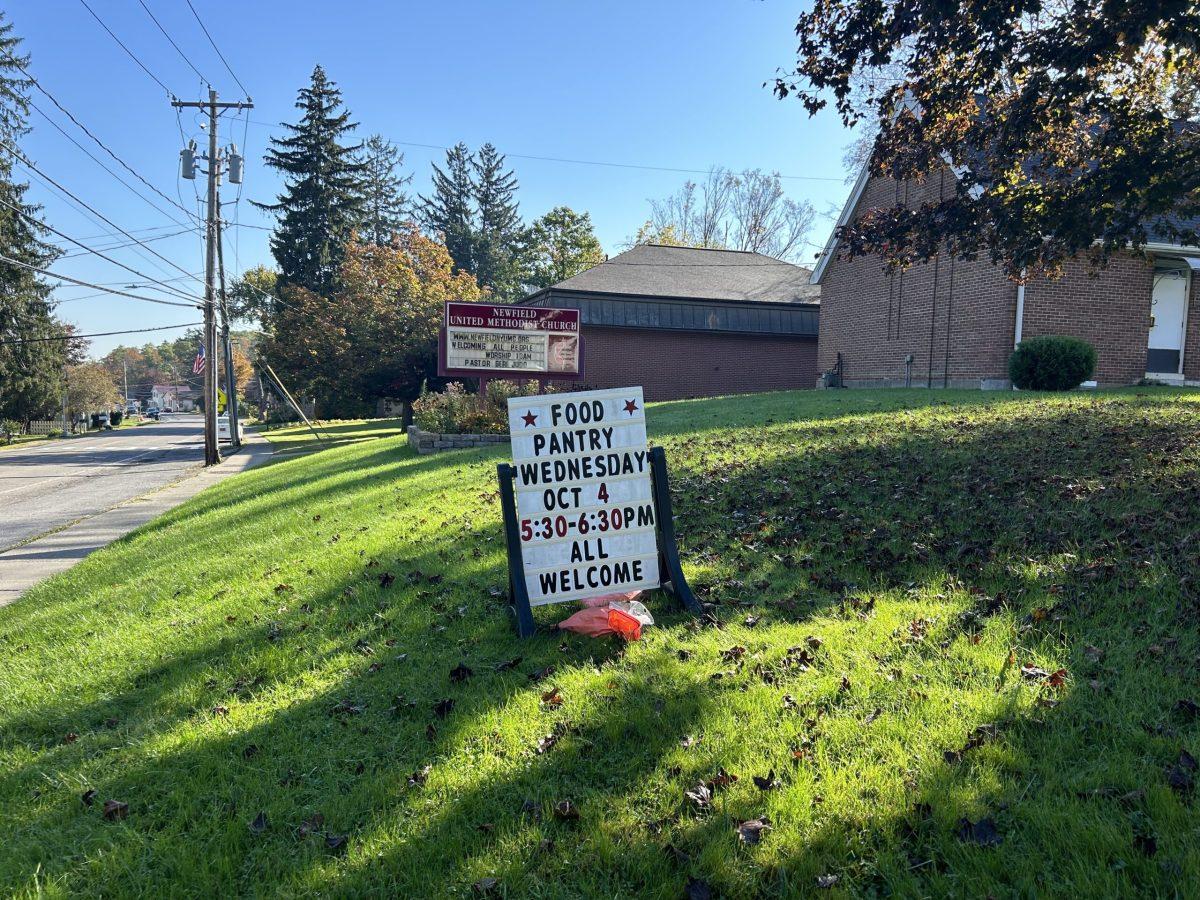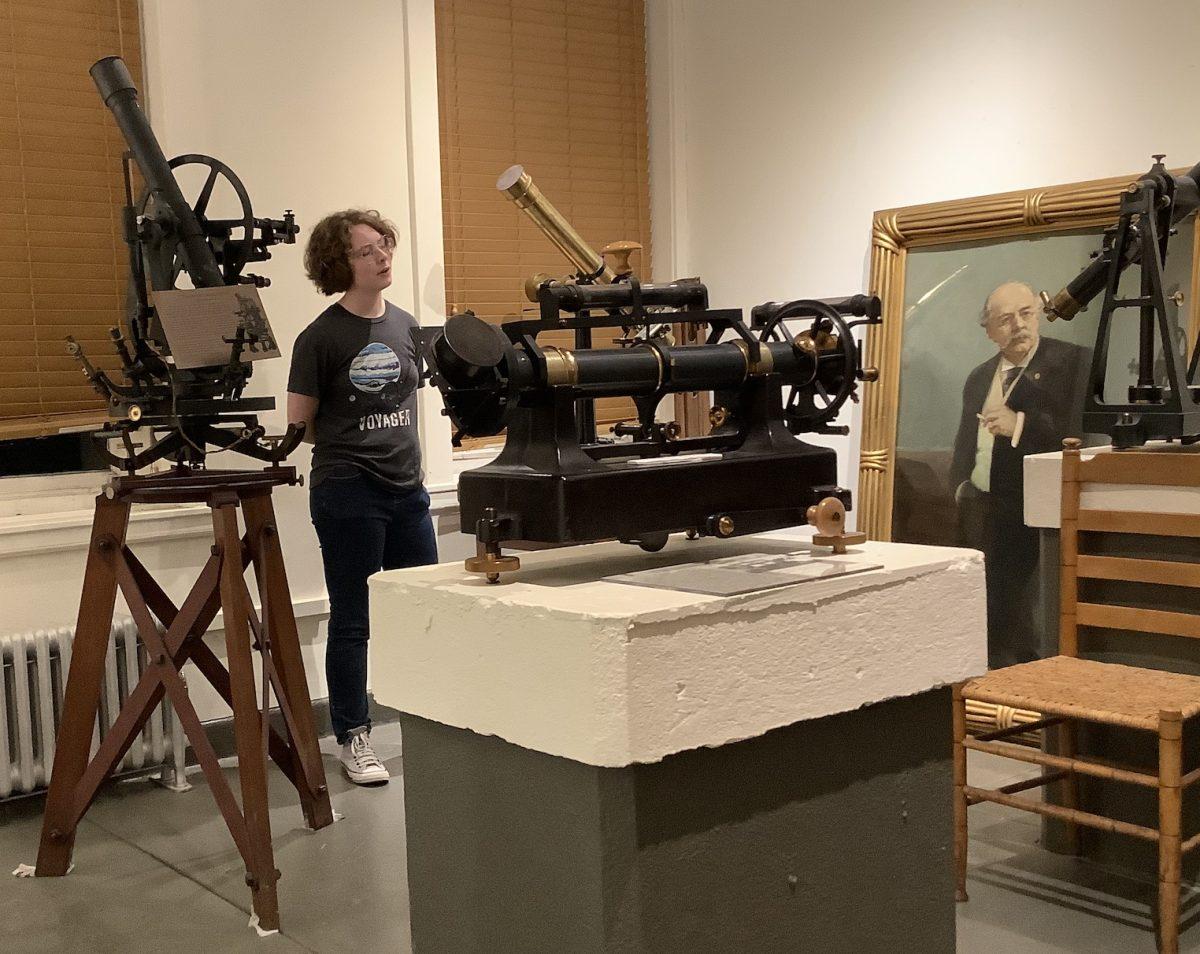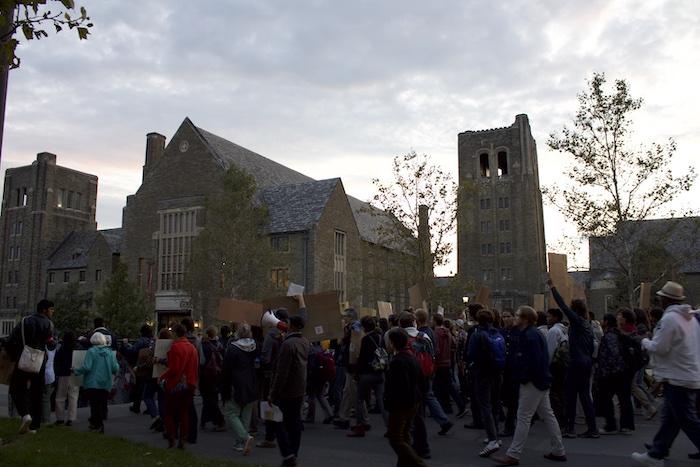Though this seems like something straight out of an Arthurian storybook, it is actually part of a modern event called the Pennsic War, hosted annually in various Pennsylvania cities by an organization called the Society for Creative Anachronism. The society currently “consists of 19 kingdoms, with over 30,000 members living in countries around the world,” according to its website.
Gytha Oggsdottir (whose real name is Laurie Beard) is the Seneschal, or president, of the Dominion of Myrkfaelinn, the local SCA chapter in Ithaca.
“The Society of Creative Anachronism is a nonprofit whose goal is to do education around recreating the middle ages, and so we do a wide variety of things from fencing to throwing axes to archery to arts and sciences to heavy weapons, which is full armor combat, to calligraphy, to pretty much anything they did in the middle ages, we try to recreate,” she said.
The SCA’s roots in the world of live action role-playing extends this interplay between reality and dramatic license, and members often are interested in fantasy role playing games in addition to their activities in SCA. Michael Dixon, or Toki Redbeard as he is known in the society, for example, played Dungeons and Dragons before joining the society.
Members are also attracted to SCA because the interactive immersion not only teaches historical facts, but also instills values like chivalry and courteousness, said Beard.
Scholars often point out the dual nature of what this type of educational program can do.
“On the one hand, it appears that such events can be conceived as providing a platform through which museums and heritage visitor sites can engage more interactively and tangibly with the public’s imagination of a site or a historical scene,” UK researchers Scott McCabe and Elizabeth Carnegie state in a UNESCO University and Heritage paper. “However, on the other hand, such festivals and events have been conceived as pandering to the spurious and commercial nature of post modern appetites and which deliver little creative or valuable experience or knowledge of historical events.”
This commodification of history can occur as a result of capitalist culture and the difficulties inherent in empathizing with people from the past, said Cornell Medieval History Professor Oren Falk.
“It’s inevitable in terms of the market forces within which something like the SCA operates. It’s also inevitable because of our, because of a basic inaccessibility to history, especially the history that goes beyond a generation or two. We have no way of literally getting in touch, and communing and empathizing with people who lived 100, 200, 300, 500 1,000 years ago.”
Such a consumerist approach to history does not seem to pose much of a problem for the society, however, as members generally join expressly because they wish to explore the Middle Ages in depth.
“When I started, the SCA was a much more casual organization, a much, much smaller organization and much less of a knowledge base. We have people that are doing serious medieval research,” Dixon said. “More and more, through a lot of segments of the SCA, the level of knowledge and skill and ability goes up. So while we’re amateurs sharing with amateurs, the level of knowledge just goes up constantly.”
But in the end, the thing that keeps members active is the desire to participate in a community that shares an interest.
“For me, there’s something about both the romanticized ideal of what the middle ages might have been, but really weren’t, the Arthurian romance of it. And also the real gritty, dark middle ages that were pretty horrible, but fascinating. The drive to study that and finding community with other people that share that interest, it’s kept me here for three and a half decades,” Dixon said.






